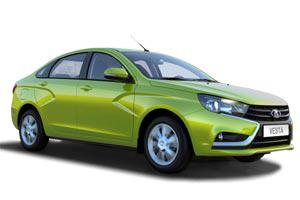Thu, 02 May 2024
Compare Volkswagen Golf (2009-2012) 1.6 and Hyundai i30 (2017-2020) 1.4 MPI
Technical specifications
| Clear list | Volkswagen Golf (2009-2012) | Hyundai i30 (2017-2020) |
| Totals | Volkswagen Golf (2009-2012) 1.6 × | Hyundai i30 (2017-2020) 1.4 MPI × |
| Mark | Volkswagen | Hyundai |
| Model | Golf (2009-2012) 1.6 | i30 (2017-2020) 1.4 MPI |
| Year | 2009-2012 | 2017-2020 |
| Number of doors/seats | (3-5)/5 | 5/5 |
| Body type | Hatch | Hatch |
| Unladen Weight | 1157 | 1316 |
| Gross Weight Limit | 1780 | 1760 |
| Top Speed, km/h | 188 | 183 |
| Acceleration 0-100 kph | 11.3 | 12.7 |
| Minimum turning radius, m | 5.5 | 5.3 |
| Cargo Volume, min/max, L | 350/1305 | 395/1301 |
| Dimensions specifications, mm | Volkswagen Golf (2009-2012) 1.6 × | Hyundai i30 (2017-2020) 1.4 MPI × |
| Length | 4199 | 4340 |
| Width | 1779 | 1795 |
| Height | 1479 | 1455 |
| Wheelbase | 2578 | 2650 |
| Front/rear Track | 1540/1513 | - |
| Ground clearance | 130 | 140 |
| Engine specifications | Volkswagen Golf (2009-2012) 1.6 × | Hyundai i30 (2017-2020) 1.4 MPI × |
| Type | petrol Injection | petrol Injection |
| Displacement, cm3 | 1595 | 1368 |
| Compression ratio | 10.3 | 10.5 |
| Number and arrangement of cylinders | 4 cylinders, in-line | 4 cylinders, in-line |
| The diameter of the cylinder x stroke, mm | 81х77.4 | 71.6x84 |
| Number of valves | 8 | 16 |
| Power, hp/rpm | 102/5600 | 100/6000 |
| Max torque, Nm/RPM | 148/3800 | 134/4000 |
| Transmission specifications | Volkswagen Golf (2009-2012) 1.6 × | Hyundai i30 (2017-2020) 1.4 MPI × |
| Gearbox | 5-speed manual | 6-speed manual |
| Drive Type | Front wheel drive | Front wheel drive |
| Suspension specifications | Volkswagen Golf (2009-2012) 1.6 × | Hyundai i30 (2017-2020) 1.4 MPI × |
| Front | MacPherson strut | MacPherson strut |
| Rear | multi-link suspensions | multi-link suspensions |
| Tire Size | 195/65/15 | 195/65 R15, 205/55 R16 |
| Disk | 5x112 ET43 d57.1
| 5x114.3 ET47 d67.1
|
| Brakes specifications | Volkswagen Golf (2009-2012) 1.6 × | Hyundai i30 (2017-2020) 1.4 MPI × |
| Front | Ventilated discs | Ventilated discs |
| Rear | Discs | Discs |
| Fuel consumption specifications, L/100 km | Volkswagen Golf (2009-2012) 1.6 × | Hyundai i30 (2017-2020) 1.4 MPI × |
| City | 9.8 | - |
| Highway | 5.7 | - |
| Combined | 7 | 6 |
| Fuel | 95 | 95 |
| Tank, L | 55 | 50 |
| Clear list | Volkswagen Golf (2009-2012) | Hyundai i30 (2017-2020) |













